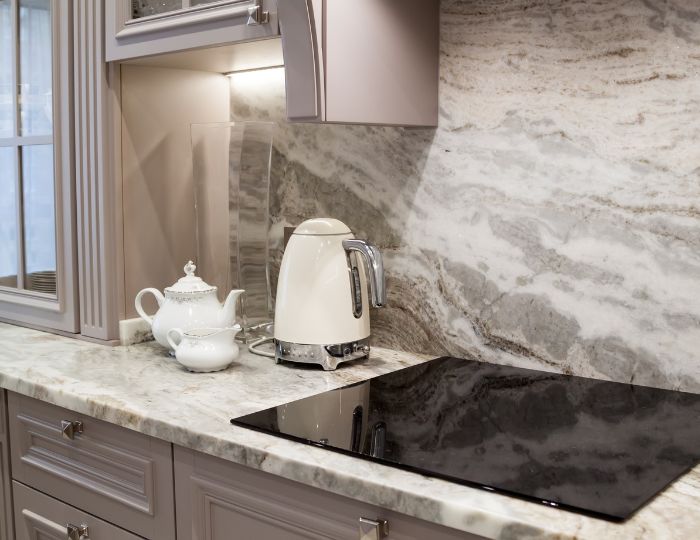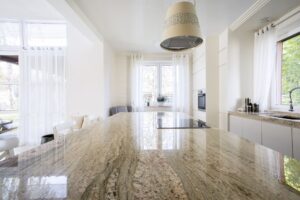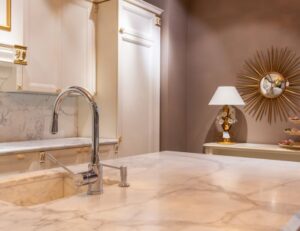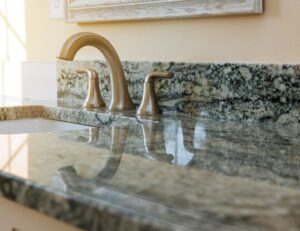Natural stone surfaces—whether countertops, floors, or vanities—bring timeless beauty and sophistication to any space. But with that beauty comes the responsibility of proper care. One of the most common questions homeowners ask is whether sealing their stone is truly necessary. The answer depends on the type of stone, the setting, and how you use it—but in most cases, sealing is a crucial step in protecting your investment.
In this article, we’ll break down why sealing matters, what happens if you skip it, and how professional stone restoration and sealing can keep your surfaces looking flawless.
Understanding the Nature of Stone Surfaces
Unlike synthetic materials, natural stone is porous. That means it has tiny openings that can absorb liquids, oils, and even bacteria. Stones like marble, limestone, and travertine are especially porous, making them more vulnerable to staining and etching. Granite, while denser, can still absorb certain substances over time.
When stone isn’t sealed, spills like wine, juice, or oil can penetrate the surface, leaving behind deep stains that are extremely difficult—or sometimes impossible—to remove without professional intervention. A quality sealer works like a protective shield, filling those pores and creating a barrier against liquids and contaminants.
The Risks of Skipping Sealing
Some homeowners skip sealing because their stone looks strong and durable. But without that invisible layer of protection, daily use quickly takes its toll. Here are a few problems that often arise:
-
Staining: From coffee on a countertop to rust marks on an outdoor patio, unsealed stone is prone to visible blemishes.
-
Etching: Acidic substances like lemon juice, vinegar, or cleaning products can eat into the surface, leaving dull spots.
-
Moisture Damage: In bathrooms or kitchens, unsealed stone can absorb water, leading to discoloration, mold growth, and even cracking.
-
Dull Appearance: Over time, wear and tear can leave stone looking lackluster and prematurely aged.
By investing in sealing, you extend the life of your surfaces and reduce the chances of costly repairs or full-scale restoration later on.
How Often Should You Seal Stone?
The frequency of sealing depends on the type of stone and its usage. Heavily used surfaces like kitchen countertops or entryway floors may require sealing every 6–12 months. Less frequently used areas may only need attention every 2–3 years.
A simple test can help determine if it’s time to reseal: place a few drops of water on the surface. If the water beads up, the sealer is still effective. If it soaks in within a few minutes, it’s time to reseal.
Why Professional Sealing Is Worth It
While there are DIY stone sealers available, professional sealing ensures long-lasting results and a flawless finish. Experts know which sealers are appropriate for your specific stone, how to apply them evenly, and how to prep the surface so the sealer bonds properly.
Additionally, sealing is often performed after a professional cleaning or restoration process. This means your stone not only gains protection but also looks refreshed, polished, and vibrant again.
The Long-Term Value of Sealing
Think of sealing as an insurance policy for your natural stone. Without it, you risk stains, damage, and premature wear that can dramatically reduce the stone’s lifespan and beauty. With it, you enjoy peace of mind knowing your stone is shielded from daily hazards while maintaining its elegance for years to come.
Protect Your Stone Surfaces with Stone Medics
If you’ve invested in natural stone, sealing is not optional—it’s essential. At Stone Medics, we specialize in stone restoration, cleaning, and sealing that keeps your surfaces looking stunning while extending their life. Whether you have marble countertops, granite floors, or limestone showers, our team ensures they’re properly protected with high-quality sealers applied by skilled professionals.
Don’t wait until stains or damage appear. Call Stone Medics today to schedule your stone sealing service and give your surfaces the protection they deserve.













